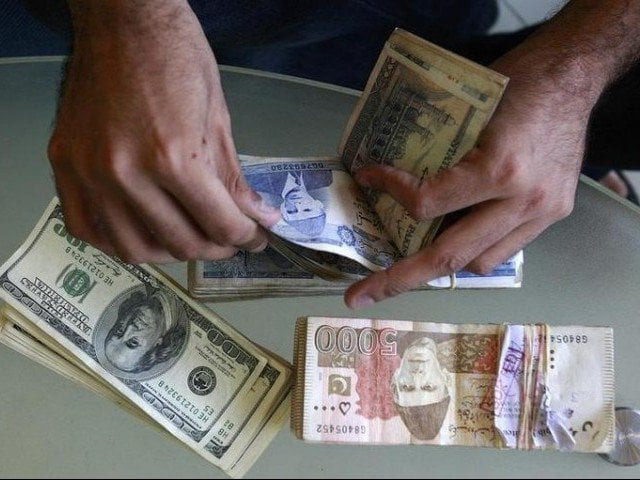Sarmaya-e-Pakistan: Winding road to state capitalism
SPL can be instrumental if independent directors are appointed timely

State-owned enterprises (SOEs) in Pakistan get a lot of press, not only because of the multitude of organisational problems associated with these white elephants but also due to continued political meddling to defeat a privatisation-led reform agenda.
With accumulated debt of these public enterprises surpassing the Rs1 trillion mark, the Pakistan Tehreek-e-Insaf (PTI) machinery looked to Singapore and China for a ‘portfolio’ approach to manage these SOEs. The finance ministry ended up ‘importing’ a holding company model that resulted in the establishment of a new company, Sarmaya-e-Pakistan Limited (SPL), on February 13, 2019.
SPL was initially given the mandate to govern around 200 public limited companies and to remove the role of line ministries in administrative decisions of these enterprises. However, this was easier said than done and SPL is now a defunct entity as most of the board members have resigned and the appointment of CEO is falling through the cracks.
In fact, the Q-block has a track record of spawning such ‘zombie’ companies or Special Purpose Vehicles (SPVs) from time to time such as the Pakistan Development Fund (PDF) and the Infrastructure Project Financing Facility Limited (IPFFL).
SPL is no different and with no political ownership, it seems to be another case of pitching to international development banks for grants as politics rather than a thoughtful business case seems to be in the driving seat.
This is evident from the fact that the Institutional Reforms Cell, headed by Dr Ishrat Husain, got the approval of cabinet to retain 237 organisational entities as autonomous bodies and 87 as executive departments of the federal government recently.
Line ministries are now looking to transfer only those subsidiaries to SPL that they consider as liabilities but can’t liquidate them due to legal complications. For example, the Ministry of Industries and Production wants to transfer State Engineering Corporation to SPL but isn’t looking forward to divesting its ownership of 35 other companies.
It appears that SPL will become home to those small ‘sick’ enterprises that are privatisation candidates and it won’t be a sovereign wealth fund or a holding company to manage these SOEs on a long-term basis.
SPL will help clean balance sheets of these SOEs for the purpose of privatisation and corporate acquisitions, and will dispose of non-performing assets (NPAs) to raise capital. This is what the Corporate and Industrial Restructuring Corporation (CIRC) did back in the early 2000s to make public sector banks such as HBL and UBL lucrative for privatisation.
Singapore’s example
This vision for SPL is a stark contrast to that of Singapore’s Temasek Holdings. Temasek Holdings is a sovereign wealth fund while SPL appears to be a makeshift arrangement for restructuring loans of sick SOEs and to revive them by allowing waivers and debt write-offs.
In Singapore, the management of SOEs is based on market principles where unlike SPL loss-making entities are not saved but shut down instead. SOEs in Singapore work for profit and are never subsidised by tax dollars. This makes Singapore a ‘corporate state’ with a very different model of state capitalism.
Moreover, Singaporean SOEs undergo continued restructuring in a corporate fashion, which here in Pakistan is usually a one-time exercise, and an expensive one.
It is obvious that a ‘big bang’ style SOE reform programme is out of question. SOEs that are listed on stock exchanges and subject to stringent regulations can’t be transferred to SPL for privatisation with the stroke of a pen.
Due to inherent tussles between institutions, ministries such as the petroleum ministry and the science and technology ministry won’t let their subsidiaries be controlled by the finance ministry under the pretext of SPL project. SPL board can exercise vast powers as it can appoint managing directors in the SOEs - without any accountability to voters at the end of the day.
A dual-ownership model shall be more feasible, if at all, during the transitory period before the privatisation of SOEs where the parent line ministry and the finance ministry, through SPL, share powers for exercising the government’s ownership functions.
Though defunct at the moment, SPL could be instrumental in strategic disinvestment and privatisation of sick units. This can only happen if independent directors to its board are appointed timely and in a transparent fashion – with a restricted role for politicians and civil servants on the board. If not, then the holding company approach to overhaul sick SOEs may be self-defeating.
The writer is a Cambridge graduate and is working as a strategy consultant
Published in The Express Tribune, December 7th, 2020.
Like Business on Facebook, follow @TribuneBiz on Twitter to stay informed and join in the conversation.



















COMMENTS
Comments are moderated and generally will be posted if they are on-topic and not abusive.
For more information, please see our Comments FAQ